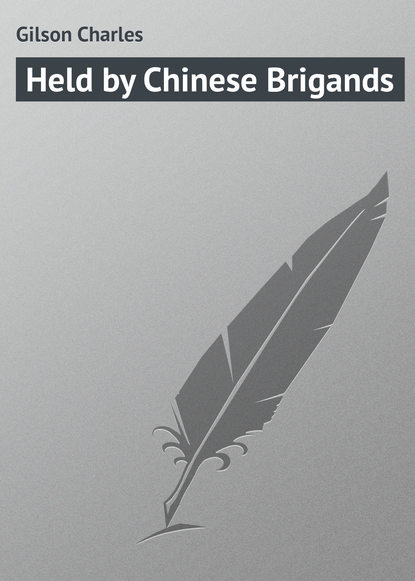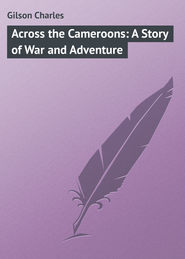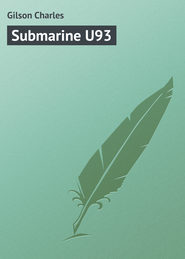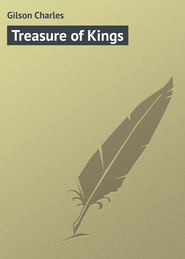По всем вопросам обращайтесь на: info@litportal.ru
(©) 2003-2025.
✖
Held by Chinese Brigands
Настройки чтения
Размер шрифта
Высота строк
Поля
"They are not essential," said the judge, "but I think you will agree with me they are wise when I tell you that the West River abounds with pirates, and there are several gangs of Chinese bandits in the Nan-ling Mountains, especially in the neighbourhood where we are going. The town of Pinglo has an exceptionally bad reputation. You yourself, Mr Waldron, are a wealthy man, and I have a position of some importance in this colony. It might be well worth the while of some rascal who is in touch with the West River pirates to give information against us."
"I get your meaning, Judge," said Mr Waldron, returning his revolver to his hip-pocket. "I'm as dumb as a dewberry pie. And now I must get back to my hotel. Good-night, and, sir, I'm pleased and honoured to have met you."
"One moment," said the judge. "Let me send for a ricksha. I am afraid my own chair coolies have gone to bed."
Sir Thomas entered the drawing-room, unconscious of the fact there was a man not five paces away from him hiding behind the curtain. He rang a small bronze hand-bell and returned to the verandah.
The man behind the curtain dropped down upon his hands and knees, and keeping in the shade of the various chairs and tables he gained the door, opened it, and passed through silently.
Two seconds afterwards he re-entered, standing at his full height, with an expression of profound dignity, even of contempt, upon every feature of his face.
He closed the door with a bang, marched with a stately stride across the room, and presented himself at the window.
"Master rang," said he.
"Yes," said Sir Thomas. "Yung How, please order a ricksha for Mr Waldron, to take him to the King Edward Hotel."
The man bowed-if an almost imperceptible downward movement of the head may be so described.
"Yes, master," said he.
Stepping upon the verandah, he picked up the empty glass which had contained Mr Waldron's whisky-and-soda. Holding this in his hand, as if it were something sacramental, Yung How stalked gravely from the room.
That night, tossing restlessly upon his bed in the stifling heat of the breathless tropic night, Mr Hennessy K. Waldron, of Paradise City, Nev., dreamed of heathen gods.
CHAPTER II-OF AH WU'S OPIUM DEN
The small river-launch steamed away from the narrow creek which divides Canton city from the island of Shamien. The Chinaman at the wheel navigated the little craft into the very midst of the clustered shipping, the mass of junks and river-boats that thronged the entrance to the creek. Her prow cutting the water in a long, arrow-shaped, feathery wave, the launch gained the fairway of the main river, and thence worked up-stream. Seated in a comfortable chair in the bows, a cigar in his mouth and a pair of field-glasses in his hand, was Mr Hennessy K. Waldron, of Paradise City, Nevada, U.S.A.
Sir Thomas Armitage drew a basket-chair into the shade afforded by an awning. There he produced his spectacles and, opening a book, settled himself to read. His nephew, with his coat off and his sleeves rolled up, was occupied with an oil-bottle in the little engine-room.
In the stern of the launch stood Yung How, with folded arms. His dark face was expressionless. For all that, his eyes were fixed upon the northern bank of the river, where the houses of the city were so close-packed that a man standing with outstretched arms in one of the narrow streets could have touched with his finger-tips the walls on either side.
At the extremity of one of these dark, stifling lanes stood a Chinaman, wearing a faded scarlet coat. This man was an old man, with a grey tuft of hair upon his chin, and a queue that was white and short and thin as a monkey's tail. He stood motionless, shading his eyes with the palm of a hand and looking out across the river. As the launch hove into sight he drew back a little, hiding himself in the doorway of an adjacent house. The launch passed within fifty yards of the shore.
He observed Mr Waldron and he observed Sir Thomas Armitage, who was engrossed in his reading. Moreover, he observed Yung How, who slowly raised his right hand and laid it upon the shaven forepart of his head.
At that the man disappeared. He vanished into the gloom of an even narrower side street. Five minutes afterwards he appeared in the open space on the western side of the Temple of the Gods. Here a coolie was standing, holding the bridle of a thick-necked, short-legged Mongolian pony, of the breed common in the north of China but seldom seen in the south. The man with the faded scarlet coat flung himself into the saddle.
"It is the West River!" he cried, and he was off like the wind, riding due north, leaving the suburbs of the great city to his right.
Such an extraordinary incident stands, perhaps, in need of explanation. The judge's party had spent a week in Canton, during which time Mr Waldron had inspected the Five-Story Pagoda, the Water Clock, the temples of the Five Genii and the Five Hundred Gods; he had witnessed theatrical performances and a public execution; he had smelled the smells of Canton.
As for Yung How, he also had not been idle. He had gone by night to a certain opium den in the vicinity of the Mohammedan mosque-the opium den of Ah Wu. Thither we must accompany him if we are to make head or tail of the narrative that follows.
Yung How had appeared before Sir Thomas Armitage. "Master," said he, "I have a brother in Canton."
The judge smiled. He had lived many years in China. He knew that Chinese servants always have brothers and aunts and grandmothers.
"And you want a day's leave, Yung How?" he asked.
"No, master," said Yung How. "Go away to-night, after dinner-time. Come back to-morrow morning."
Sir Thomas guessed that Yung How's "brother" was nothing more or less than an opium pipe. He knew, however, that it would be useless to refuse the man leave. Yung How was sadly addicted to opium; in Hong-Kong he often appeared in the morning with the pupils of his eyes no bigger than pinheads. And Sir Thomas knew also that, once a Chinese has become a slave of the opium pipe, nothing will ever cure him. The judge shrugged his shoulders.
"Very well, Yung How," said he, "you can go."
"Thank you, master," said Yung How. And he stalked in a majestic manner from the dining-room of the Shamien Hotel, where the judge and his party were staying.
Yung How crossed the little bridge of boats that connects the island with the main part of the city to the north. He found himself in narrow, twisting streets densely packed with people, the majority of whom were of the coolie class and wore little or no clothes. The shops and booths were ablaze. Everyone was shouting at once, swearing, wrangling, bargaining till they were hoarse. The heat was insufferable, the atmosphere humid. The foul smells of the city would have sickened a European, but they did not seem to affect the Oriental nostrils of Yung How, the Cantonese.
He walked slowly with long strides, turning to the left, then to the right, then to the left again. He was evidently familiar with the city. Brushing past half-naked, gesticulating coolies, and thrusting children aside, he came presently upon a great sow, sleeping in the middle of the street. Since there was no room to pass on either side he kicked the animal violently. As the pig got grunting to its feet, Yung How swept past with an expression of contempt upon his face.
He found himself, at last, outside the Mohammedan Mosque. Crossing what the Europeans call "West Street," he entered a dark thoroughfare, a blind alley, at the end of which was a solitary, blood-red Chinese lantern, suspended above a door.
Yung How did not knock. He walked straight in and found himself in the presence of Ah Wu.
Now Ah Wu was a notorious character; he was also a notorious scoundrel. He was a little, fat man, with a round, smiling, cherubic countenance-except that there was nothing cherubic about his eyes, which were small and evil, and glittered like those of a snake.
"Ha!" he exclaimed, the moment he set eyes upon Yung How. "You have returned to Canton! Ah Wu bids you welcome. If he eats rice under the roof-tree of Ah Wu, Yung How shall have of the best. He shall smoke the finest Chung-king opium."
"I desire none of these things," said Yung How.
Ah Wu looked disappointed, for Yung How was a rich man as Chinamen went, who paid for his night's entertainment in brand new Hong-Kong dollars.
"Ah Wu," said Yung How, in a low voice, "I desire to speak with you upon a matter which is private. It will be worth your while to help me if you can."
Ah Wu's eyes glistened. He rubbed his hands together. "Come with me," said he.
He drew aside a heavy, richly embroidered curtain and, passing through, they found themselves in the opium den. This was a room of two stories, with a flight of stairs in the middle leading to the upper story, which was a kind of balcony. All around the walls, both upstairs and downstairs, were couches, and by the side of each couch was a small lacquer table. Upon every table was an opium pipe, a small bowl containing a substance that resembled treacle, and a little spirit-lamp. And upon each couch was a man, stretched at full length, wearing no more clothes than a kind of towel tied around his waist, for the heat of the room was like that of a Turkish bath.
Some of these men were engaged in smoking, rolling the opium into little pills, holding these pills over the flame of the spirit-lamp until they frizzled in the heat. Some were lying flat upon their backs, with their arms folded behind their heads, staring with eyes wide open at the ceiling. Others were motionless, insensible, asleep-drugged into oblivion. The room reeked with the pungent smell of the drug.
Yung How, taking no notice of the occupants of the den, followed the proprietor into a small room under the stairs. There a paraffin lamp of European manufacture burned upon a table. Ah Wu offered his guest a chair and seated himself on the opposite side of the table. He produced a matchbox from the sleeve of his coat, struck a match, and lighted a small spirit-lamp. This, together with a bowl of opium and a large ivory pipe, he shoved across the table.
"You will smoke?" he asked.
Yung How could not resist the temptation. He snatched up the little skewer and dived it into the brown glutinous substance.
"Thank you," said he. "I can think better when I smoke. The matter of which I have to tell you, Ah Wu, is of some importance. It may be very profitable to me, and also, in some degree, to you-if you are able to assist me."
Ah Wu's little almond-shaped eyes glistened more than ever. His face became wreathed in smiles. He got to his feet and went to a cupboard, from which he produced his own opium pipe. Then he seated himself again at the table, and with their heads very close together these two sleek, shaven, unmitigated rascals rolled their little pills and filled the room with bitter-smelling smoke.
And as they fell under the influence of the wonderful and subtle drug that holds sway over the whole of the Far East, from Shanghai to Bombay, they discussed in low voices the affairs of Mr Hennessy K. Waldron, of Paradise City, Nevada, U.S.A.
"Tell me," asked Yung How, "do you ever see anything of Cheong-Chau, the robber?"
"He himself," said Ah Wu, "comes often to Canton. He invariably stays here. He is a great smoker. He smokes opium by day and walks abroad by night. He will not show himself in the streets by daylight, in case he should be recognised by the soldiers of the Viceroy."









